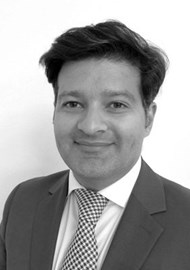Do you know what the difference is between a profit and loss account or a balance sheet? Have you wondered how you will market your practice? What can you do to drive your team to success? These are just some questions that may be answered by doing a Masters in Business Administration (MBA) degree. The MBA has long been considered an important qualification in the business world but it is becoming more recognised in the realms of medicine. In the United States, there are a growing number of medical degrees that include dual qualification with the MBA degree.
This can be attributed to several factors. Healthcare professionals are realising that healthcare and finance are becoming much more integrated, especially as we are encouraged and willing to take on senior managerial roles or consider entering the independent sector to develop our own practices. We are also now involved in multidisciplinary teams, and so management and leadership skills are essential to communicate well. Working alongside managers, we are finding we need to be able to communicate with them, and understand how managers think. Finally, an MBA provides other skills like an understanding of accounting, organisations and finance, which will help us develop in both the public and private sector.
What is an MBA?
An MBA is a higher degree that provides a comprehensive overview of business administration. It develops an understanding of accounting, finance, marketing, organisations and people management. The MBA can be studied as full-time, part-time or distance learning. In the United Kingdom, the full-time degree is usually a one-year programme, however, some courses do run to up to two years. Full-time essentially means you will be a student for the year and expected to attend university most days of the week, with intensive lectures and projects to complete. Part-time and distance learning programmes are structured in several ways. Students will be expected to complete the MBA within two to three years but usually will have up to five years to complete it, though that is not encouraged.
Examples of how these programmes can be structured include weekend, monthly or three-monthly attendances, or even totally distance learning where you are not expected to attend the university at all with the whole programme delivered online. Like any other Master’s degree, there will be regular assignments, lectures (either physical or online) and, of course, exams. As part- time, you will probably have to spend at least 10 hours a week studying, so you will need to allocate time to complete the projects and the assignments. There will also be a research project, during which you have to develop a hypothesis and test it through research and write a thesis. Most MBAs are in fact general, some allow specialisation towards the end and some are healthcare focused. You will often have core modules and then the ability to select elective modules to suit your interests.
MBA programmes vary tremendously and so it is very important to research the programme that suits your working and personal lives. Some even allow for study abroad as part of the programme. Prices also vary greatly. The most prestigious universities will charge nearly £60,000 for their courses, and run longer. The majority are much less than that, with prices starting from around £13,000. There are several good guides that will rank the top programmes. It is important to realise that for healthcare professionals, the top programmes are not necessarily the best for you, unless you are considering switching careers and entering a managerial career.
One of the best ways to find out about available MBAs is to attend a MBA fair. Again, there are numerous available, organised in several cities in the UK. During these fairs many universities and colleges will attend, and in one evening you can see all of them and ask questions about their programmes. Another important factor to consider is whether the MBA is accredited or not. MBAs may be single, double or triple accredited if they are accredited by MBA Associations from the UK, Europe or United States. An accredited MBA means that it has passed the scrutiny of the association, and we would encourage you to try and study an accredited MBA. A single accreditation is sufficient, unless you are or will be considering the MBA to seek a higher managerial role away from the clinical role or looking to transfer your qualification abroad. For those that cannot commit to a full degree there are other options such as certification or postgraduate diplomas in management. These can provide a feel for what a full MBA degree may be like and will often contribute credits towards a full masters degree should you then decide to pursue this.
Entry requirements
Entry requirements vary, most would require a previous university degree, and most require a number of years of work experience prior to being accepted into a course. Medical professionals are often given special consideration when it comes to work experience and usually accepted having done only clinical work. Some of the more competitive courses require you to do the Graduate Management Admission Test (GMAT) however, there are many other good ones that do not.
Why do healthcare professionals need a MBA?
The simple answer is that we do not need a MBA; however, certainly doing one will teach skills that are very different to what we are used to, but surprisingly perhaps, very relevant to our clinical practice.
Let’s start with accounting. Most healthcare professionals will have to deal with accounting in one form or another, either in the management of a public service, where resources are limited, or in their private practice, especially important when running limited companies for their practice. The MBA will help you understand balance sheets and how to make one, the differences between profit and loss, gross and net profits, gains and many other accounting terms like overheads. It will also teach finance, in terms of different ways to finance a venture, structuring finance and the difference between the different types of shares possible. One of the top reasons that a business will fail is simply that the maths did not add up.
However, it is very important to realise that MBAs are much more than numbers. This is probably one of the reasons that discourages many clinicians from doing them, thinking that they are all about accounting. In fact, accounting is only one module out of the many modules that compose a MBA syllabus. The MBA will develop an understanding of organisations, whether small or big, and how to manage them or manage within them, either as a manager or a leader. It will teach efficiency, economy, and dealing with problems within organisations. There is a strong emphasis on strategy, and how this can be developed, and how it links to important analysis like cost-benefits, human resource or risk analysis.
Communication is one of the most important skills that a MBA will teach. How you should negotiate a deal, achieve a win-win scenario or resolve conflict. These are commonly faced issues in our healthcare world and we can develop skills to handle them.
Organisational behaviour encompasses a variety of topics, from understanding the culture of an organisation to leading the team. These areas are already being highlighted regularly in healthcare systems and the basis for failures such as the Mid Staffordshire inquiry.
Another important skill is marketing and strategy. This will be helpful with a public organisation, to promote the department within the hospital or region, or for private practice to help in deciding about best location, or pricing strategy. It will teach about the different types of marketing, direct and indirect, and how to effectively perform market research and understand the concept to market forces. Lack of understanding of the market is another top reason why a venture will fail.
Operations management involves understanding processes and looking at methods to improve the efficiency of these. Consider a car manufacturing plant or a fast food outlet, have you ever wondered how can they be so efficient in the delivery of their products and not make mistakes? There are many things to be learned from industrial process that can be applied to the healthcare setting.
The MBA in action
So now let’s look at how the MBA can help you. The time has come when we have decided to establish our own private clinic. We need to consider how to market our services. To many of you this may simply mean how we will advertise ourselves. Marketing, however, is more than just advertising. Firstly, we need to recognise opportunities, and that involves looking at ourselves, competitors, consumers and the environment we are entering. We have to decide who we are targeting and this will dictate how we can tailor our services to match the needs of that target market. The next stage is commonly referred to as the marketing mix or ‘four Ps’. The Ps are product, price, place and promotion. These are quite self-explanatory but it provides a nice framework to help develop our marketing plan.
We now have a plan of action for our clinic but we need to recruit people to help implement and deliver our services. Human resource management would be our next module. We need to identify our staffing requirements, recruit and retain them. Next comes training our staff with the skills needed to deliver our products and services. We have also taken on a leadership role now and must inspire our team to deliver our vision. There are numerous examples of visionary leaders in the world that use a variety of techniques to get the best out of their followers.
The clinic has opened and we have a team of highly motivated staff ready to deliver our services. Our next focus is measuring performance and ensuring the consumers are satisfied and quality is maintained. There has been huge interest in quality in healthcare and operations management encompasses this. Clients are happy with our service, but we need to constantly review this and explore ways of improvement. Process improvement has been widely used in industry, such as car manufacturing, to reduce waste (lean) and decrease variation (six sigma) in processes. The cumulative effect is to increase efficiency and reduce errors. Finally, the money starts flowing and we need to understand the basics of accounting and finance.
This example simplistically illustrates some of the practical benefits of a business or management degree. We hope this fuels your appetite to find out more about doing a management qualification.
Further reading
- Nassab R, Rajaratnam V, Loh M. Applying MBA Knowledge and Skills to Healthcare.
London 2011; Radcliffe Publishing. - Stanton E, Lemer C: MBA for Medics. London 2010; Radcliffe Publishing.
Declaration of competing interests: None declared.
COMMENTS ARE WELCOME






